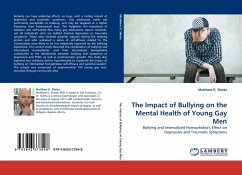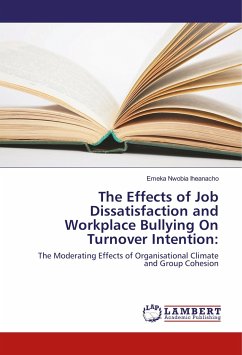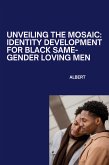Bullying can have enduring effects on boys, with a lasting impact of depressive and traumatic symptoms. Gay adolescent males are particularly susceptible to bullying, and may be targeted at a higher frequency than heterosexual boys. This heightens the experience of isolation and self-hatred that many gay adolescents report. However, not all individuals who are bullied develop depressive or traumatic symptoms. Those who received parental support during the bullying period, and who sustained a sense of self-efficacy related to the victimization were likely to be less negatively impacted by the bullying experience. The current study observed the combination of bullying and internalized homophobia, and how internalized homophobia contributed to the relationship between bullying and symptoms of depression and PTSD, as well as posttraumatic growth. The study also explored two resiliency factors hypothesized to moderate the impact of bullying on internalized homophobia: self-efficacy and parental support. The sample was comprised of approximately 100 young gay men, recruited through community sites.
Bitte wählen Sie Ihr Anliegen aus.
Rechnungen
Retourenschein anfordern
Bestellstatus
Storno








